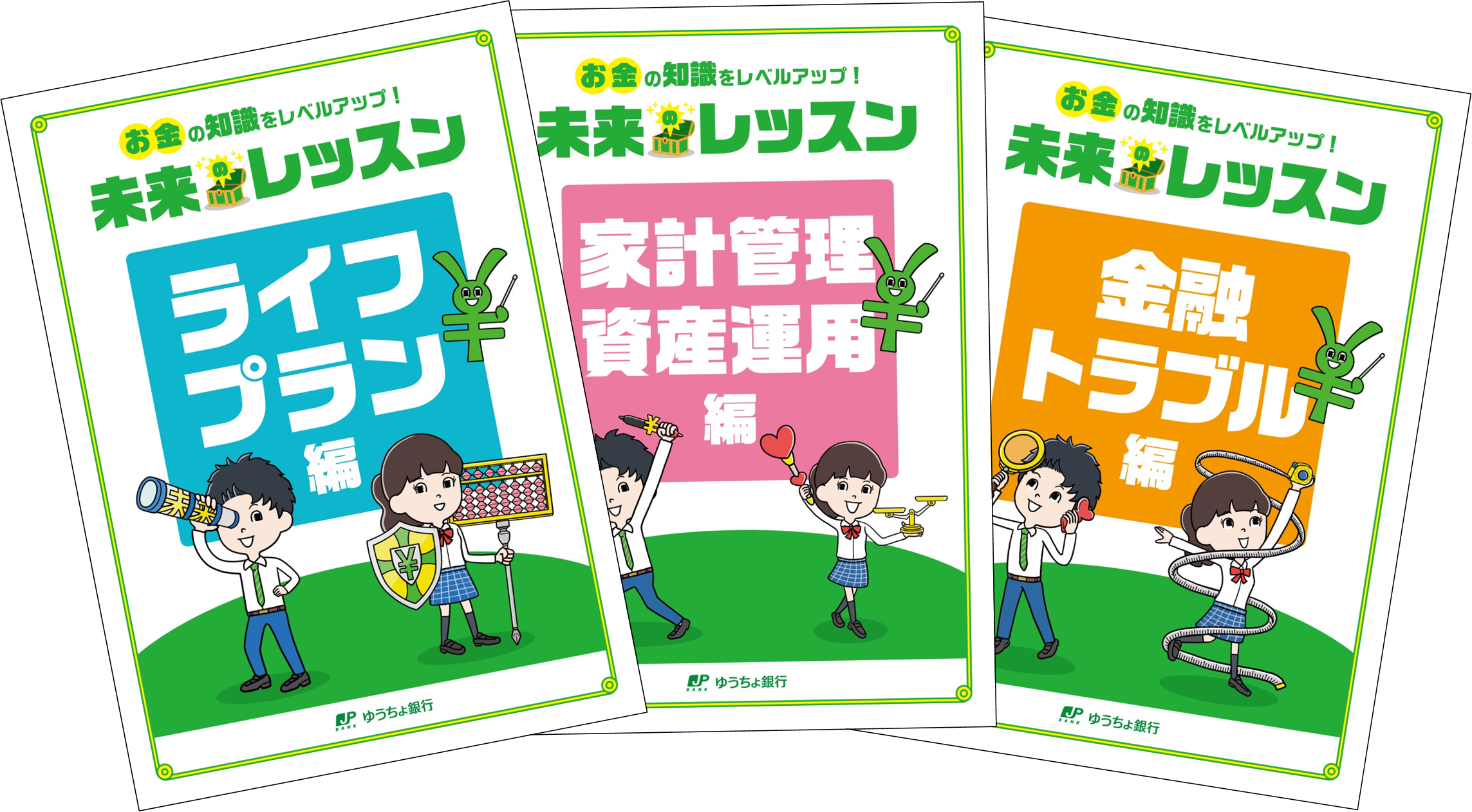Financial Education
Basic Stance
With economic globalization, the spread of cashless payment, and lowering the legal age of adulthood to 18, there has been considerable change in the financial environment surrounding children, and against a background of youths encountering financial trouble, demand for financial education is growing from all quarters of society.
As a financial institution that is deeply rooted within regional areas, Japan Post Bank believes that it is its social responsibility to teach the children growing up freely in these areas about the importance of money and how to treat it properly.
Financial Education Initiatives
Japan Post Bank has produced our proprietary teaching material and conducted financial education classes for elementary and junior high school students since FY2015/3.
From FY2024/3, Japan Post Bank has produced the original textbook and conducted financial education classes for high school students too.
Visiting Lessons
Japan Post Bank employees are visiting schools in order to conduct lessons to teach students about money and other topics in an easy-to-understand manner, In FY2024,189 projects* were implemented. If you or your organization is interested in this service, please contact your nearest Japan Post Bank or Post Office.
- *:
- The number of financial classes is the number of services provided by Japan Post Bank and does not include those provided by Post Office.
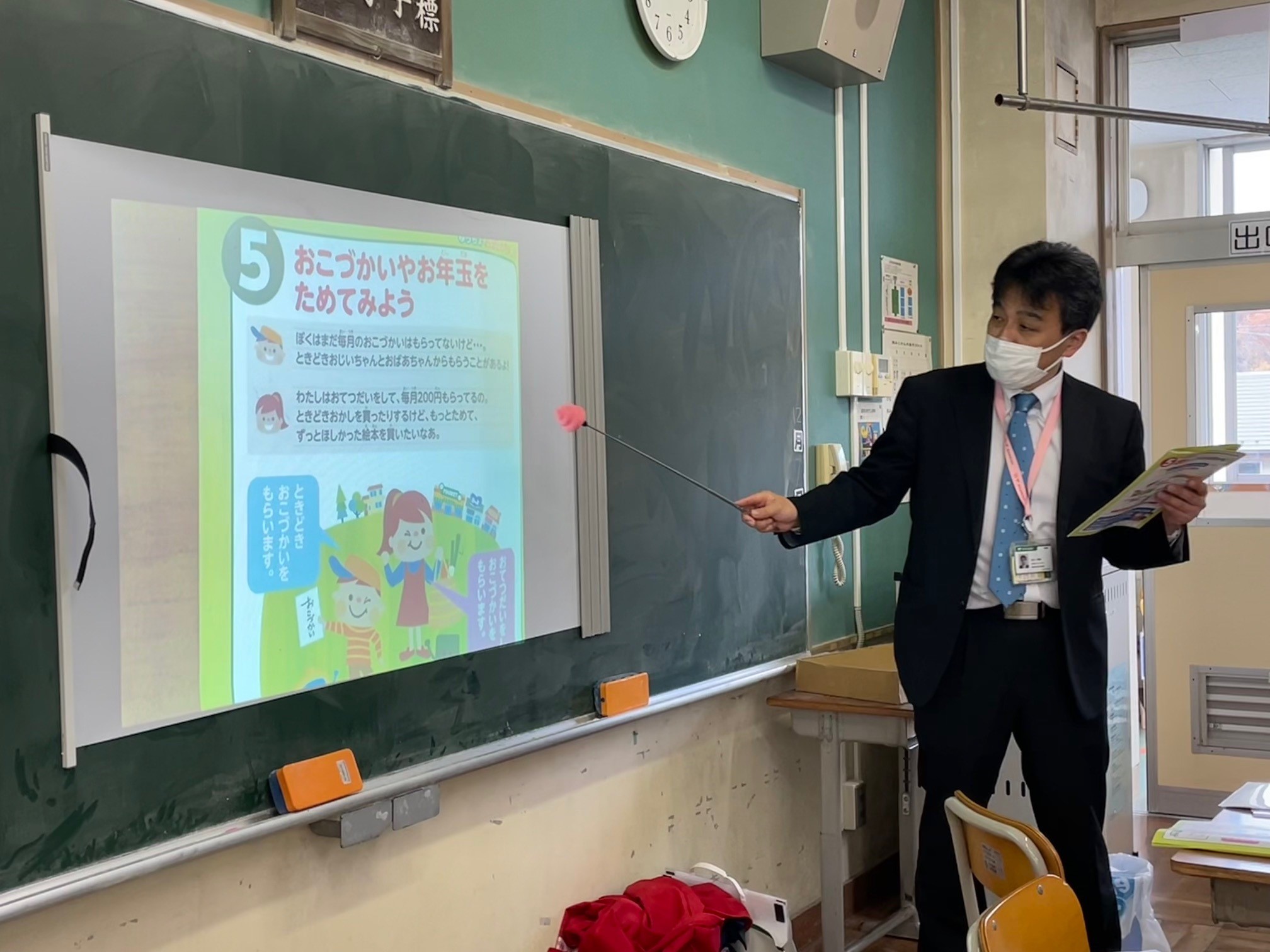
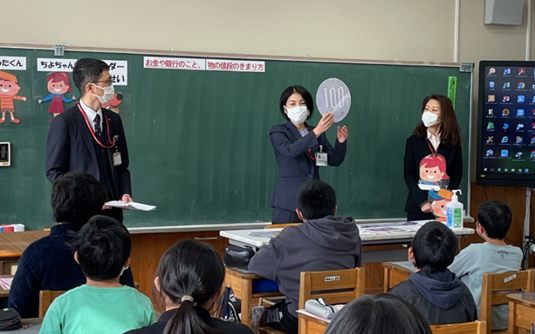
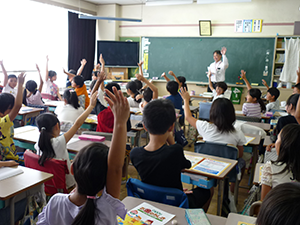
Financial Education Classes (visiting lessons)
Original Textbooks
In our Financial Education program, we are utilizing our proprietary teaching material.
<For elementary and junior high school students>
In our Financial Education program, we are utilizing our proprietary teaching material Okane no Chishiki (“Money Knowledge”),
to communicate to students in a clear manner the importance of money and how to manage it properly. In FY2021/3,
we produced texts that can be used together with the original textbook, including Denshi Money Nado (“Electronic Money etc.”)
and Yuushi to Toushi (“Financing and Investment”), which was produced with the assistance of the Japan Sustainability Investment Forum.
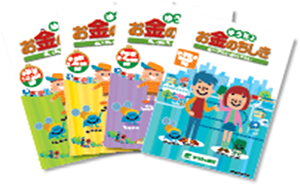
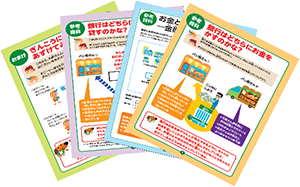
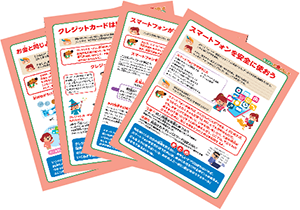
<For high school students>
In our Financial Education program, we are utilizing our proprietary teaching material Mirai no Lesson (“Lesson for future”),
which was based on Home Economics of High School Course of Study (national curriculum guidelines for high schools).
We have 3 types of textbook, "Life Plan", "Household Management and Asset Management", and "Financial Trouble".
